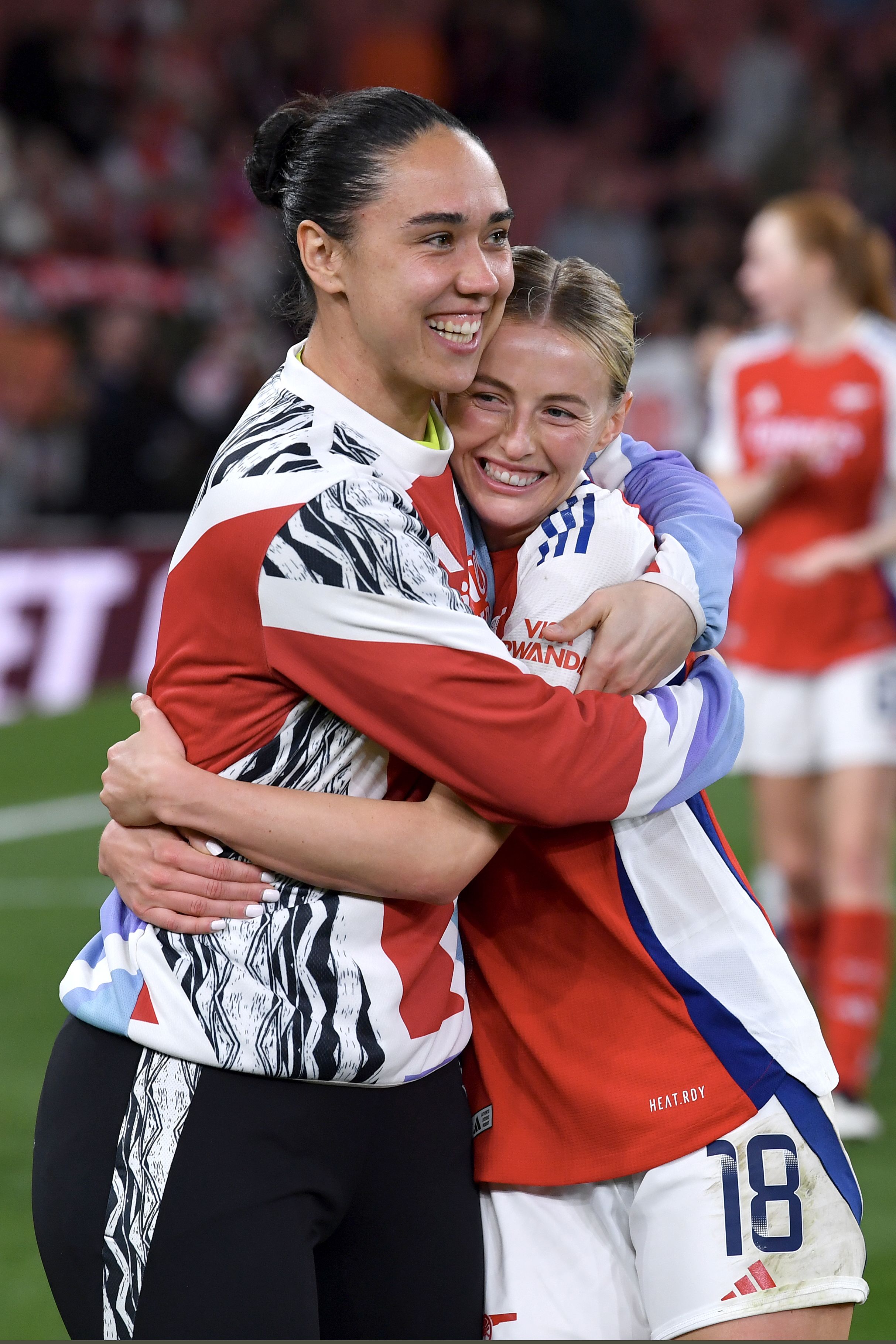chloe's FOOTBALL EDUCATION
Our forward opens up on her footballing philosophy
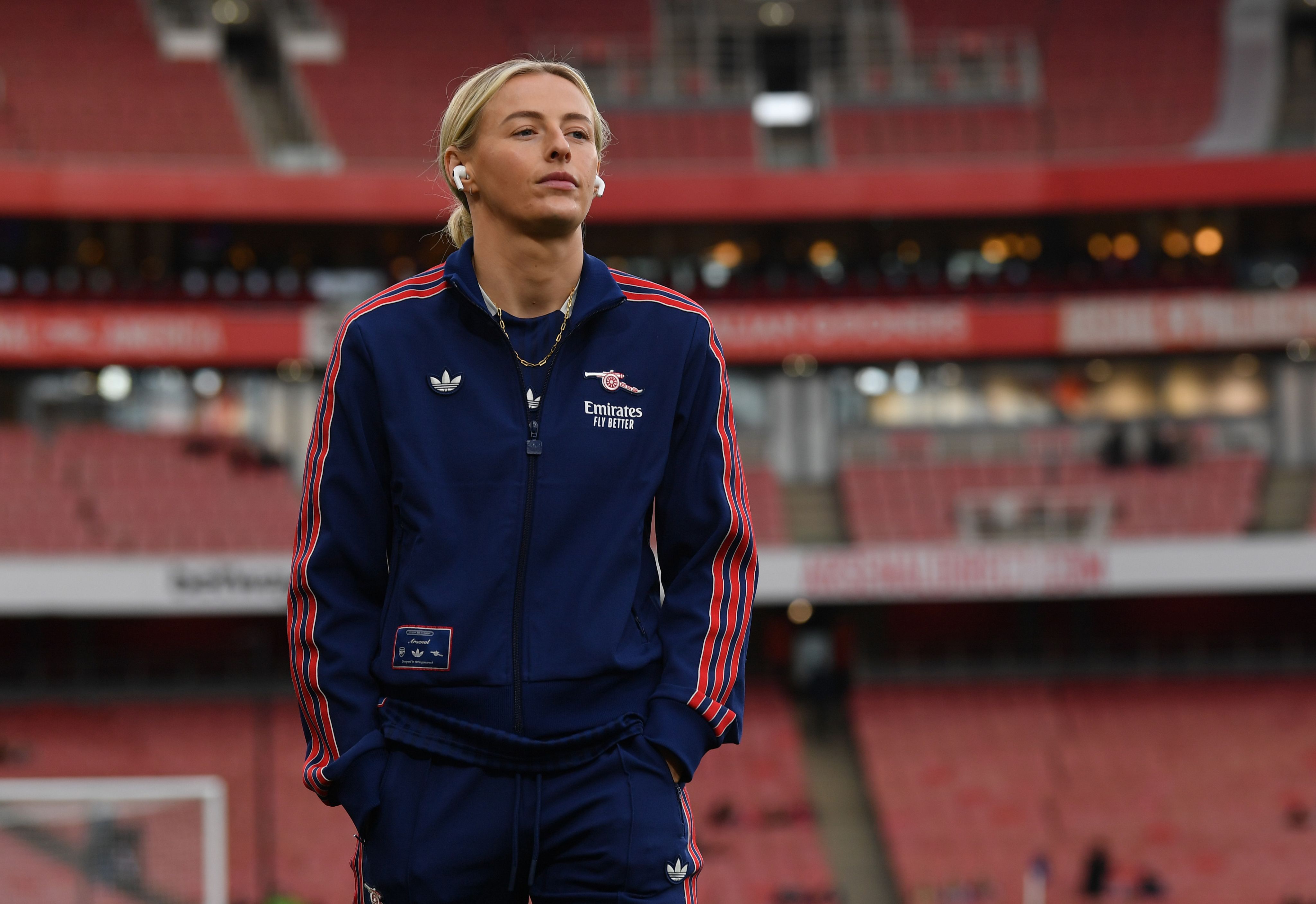
What do you remember from your very early days being coached? What were the most valuable lessons you learned?
I learned a lot of my trade playing cage football from a really young age. That was football for me, as far back as I can remember: playing in the cages with my brothers and all their friends. I think if I didn't have five older brothers, I probably wouldn't have gone into that environment with confidence or even at all. They showed trust in me and accepted me, which allowed all the other boys to do the same.
My brothers definitely pushed me to be better every day, but also they celebrated how good I was as well, which was really nice. I can stay grounded knowing that they're going to be honest and tell me when I have a stinker! But they’ll always root for me whenever they watch me play.
There was no specific coaching involved in the cage because it was every man for themselves. You show what you're capable of every day on that pitch. You learn as you go, you take risks and you make mistakes.
I think it's about holding your own within that environment. It's not really about who you know: if you're good enough, you get to stay on the pitch. I was the only girl there, so I think I had to show a bit of personality in my performances. That’s where my tricks come in. I just tried to play with freedom and show what I'm capable of. When I went into QPR, I then started getting proper coaching and then I could take those learnings back to the cage.
I still have that love of the kid in the cage who just wanted to go and express themselves. I still have that fire in my belly to go and win the ball back at all costs and really fight for the team. There's no trophy to be won in that, but it's the pride that you walk off the pitch with.
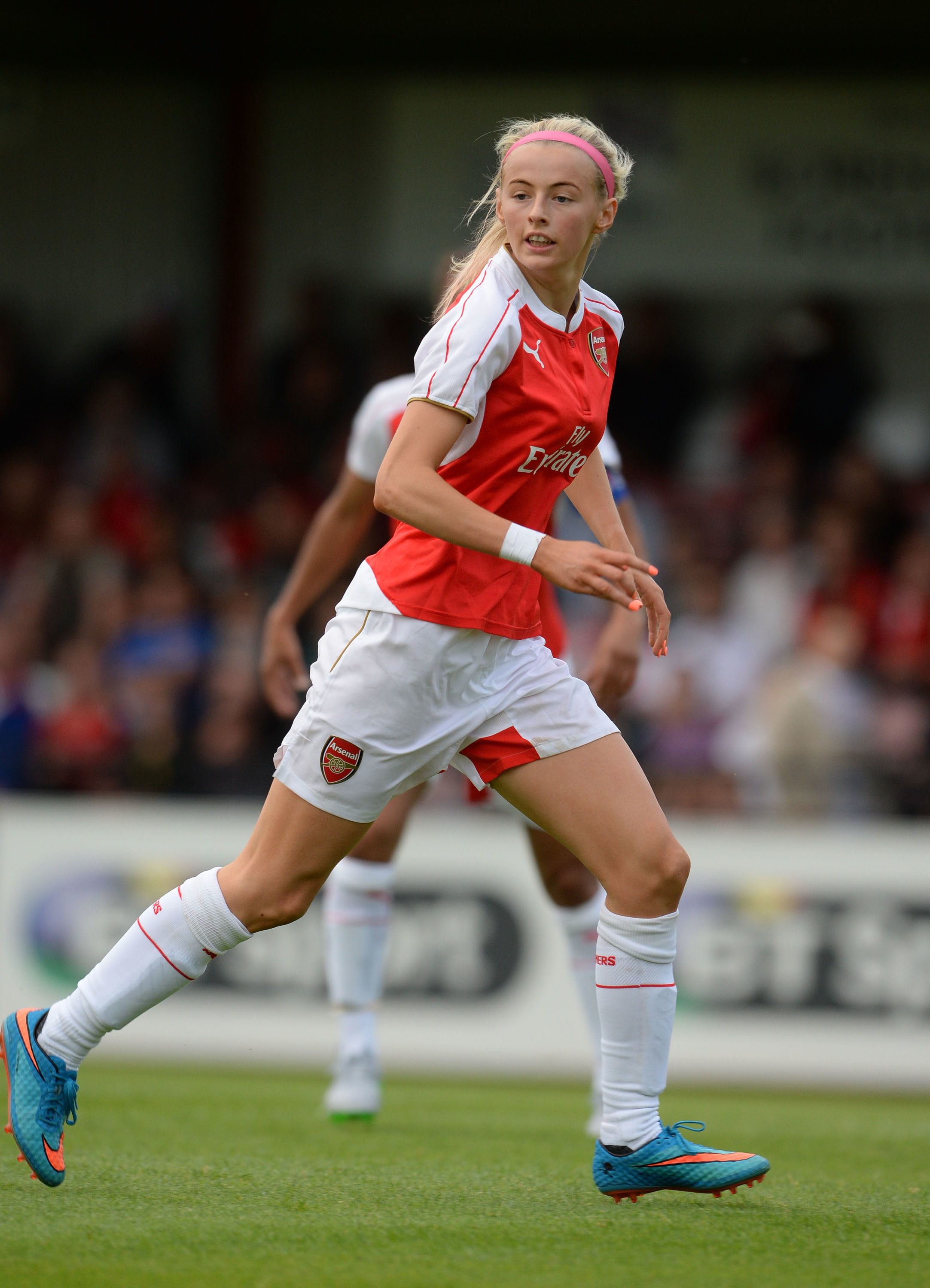
Who were your early influences? What players did you look up to when you started and why?
Kelly Smith, of course. I remember buying her book and trying to watch her as much as I could growing up, and then when I joined the club, I could ask her so many question. Her and Rachel Yankey were the players I looked up to the most at Arsenal. When I went up to the first team at Arsenal, Yanks was a great role model for me and went into a lot of detail in training. She looked after me but also challenged me as well. She really pushed me to be better every day.
On the men's side, I know a lot of people would say Messi, Neymar, Ronaldo but I just loved Adel Taarabt. I used to watch videos of him all the time on YouTube. He's an unreal player and I try to bring a little bit of flair to the pitch like him. Being a PPR fan, you don't have much to celebrate but with Adel Taarabt, you can celebrate every time you want watching him play.
Can you pinpoint a stage in your career, or an age group, where you made the biggest leap?
It was probably my first loan spell to Everton from Arsenal. That was a massive learning point in my career and a massive step out of my comfort zone in terms of moving away from home at 18. Leaving London for the first time in my life to go up to Liverpool was a big adjustment, but I knew it was for my development. Making that move allowed me to push on with my career at a really important moment.
I was learning from amazing players like Kelly and Yanks at Arsenal, but there came a time where I needed to go and show what I was capable of and make mistakes on the pitch to grow from, because I was quite immature in the way that I played.
After that, I'd probably say my ACL injury. I learned a lot about myself and how I can push myself to whole new heights, physically and mentally. Sometimes you can look at an injury very negatively, but I look back and know it's something that really shaped who I am. Just around the corner from such a low moment in my career was one of the highest moments of my career, winning the Euros with England.
Knowing that you have players who have experienced the same injury in the past is amazing. I leant on the likes of Jordan Nobbs - I remember she called me straight after I did my knee. Hopefully, I could help someone else in that position too now. It's just really nice that women's football is a community where we can come together to really look after each other in moments of injury.
What managers have you worked with, and how do they differ?
It’s so important for a manager to understand the player as a human being and I think Renée is top at that. I could tell that from my first conversation with her. I understand football is a game that's very competitive and you have to keep as many people happy whilst still being successful, for the good of the team. Once you build the relationships, you understand that. As a group, we can do great things as a collective, but we also have to work individually. What can we all bring that means we’re better than the team in front of us? I think managers who have experienced the game as players know how to work with others in difficult moments as well. I enjoy the arm around my shoulder approach, but also I like being pushed to get the best out of me. It's about balance.
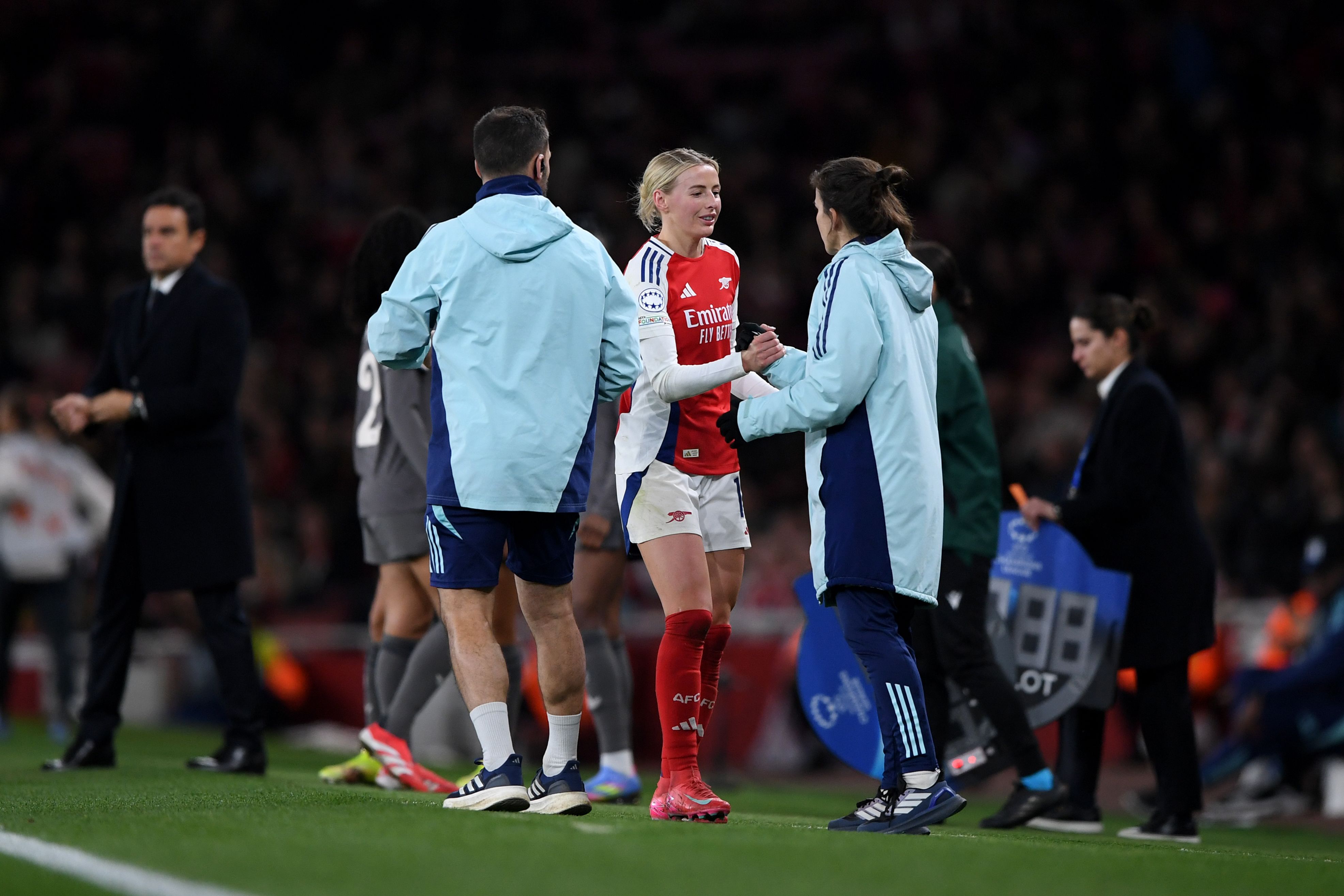
"I'm having my first taste of management with the Baller League – a six-a-side indoor football competition"
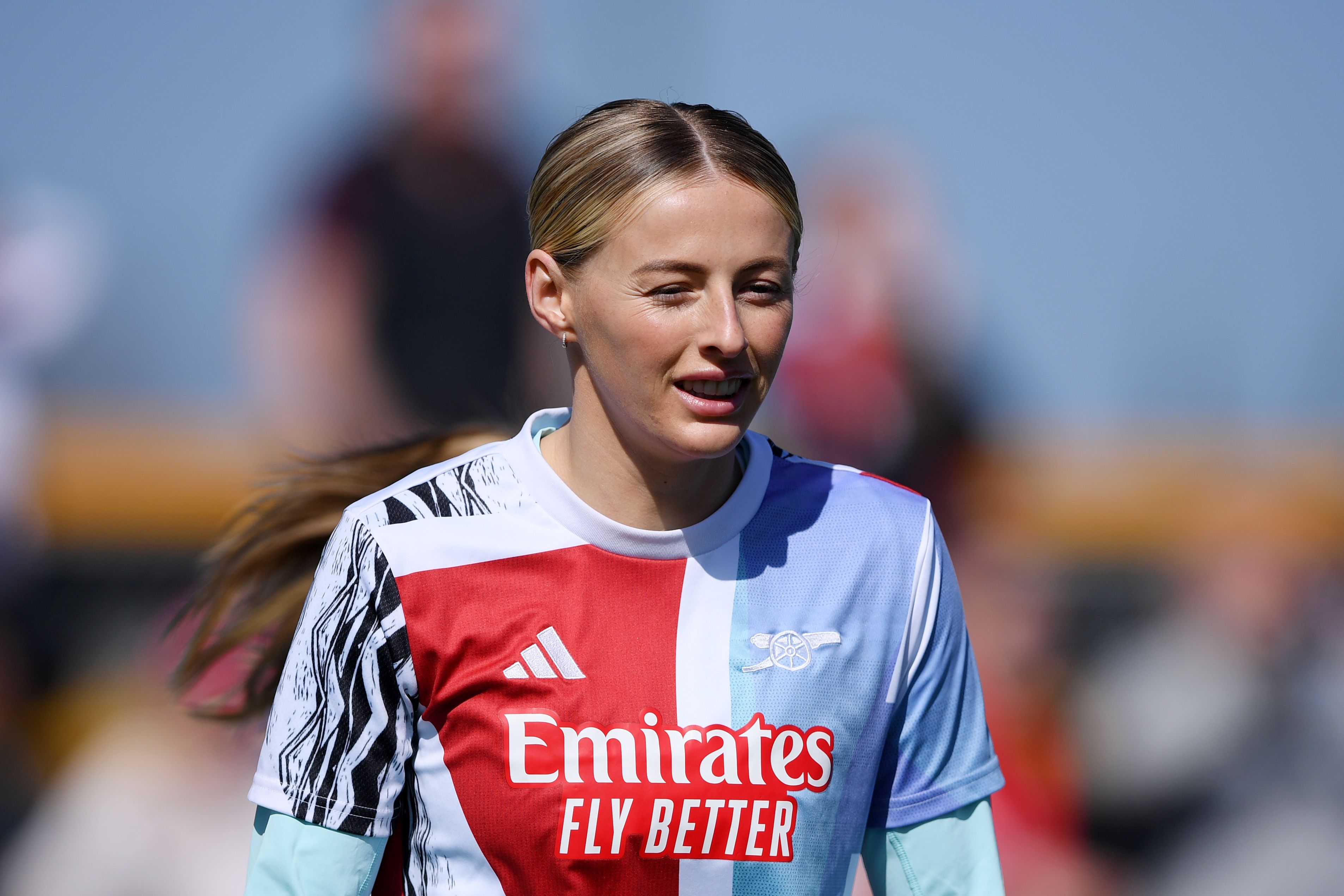
What were your favourite training drills then, and what are they now?
I really enjoy rondos because you can have a real laugh but it's also so applicable to games. It's an opportunity to show that flair, too. Small-sided games are fun because they're always competitive. I just really enjoy training, to be honest! That's probably my biggest learning from my injury: I never take any session for granted. I'm grateful to be at Arsenal with a smile on my face and I'm very happy to be on the pitch, so everything from then on is a bonus.
What training qualifications do you have now or would like to have in future? What coaching experience do you have?
I'm having my first taste of management with the Baller League – a six-a-side indoor football competition. I'm really looking forward to seeing how that goes because it's going to be very competitive. Hopefully, I'll make a good manager! I'll give my best to anything that comes my way.
What do you wish you had known earlier in your career?
I feel grateful for the opportunities that I've been given. I look back and I think the young girl who had a big dream of playing professional football would be proud of the player I’ve become. I just try to be the best version of myself every day. Moving forward, hopefully there's many more trophies to be won and I'm excited for that.
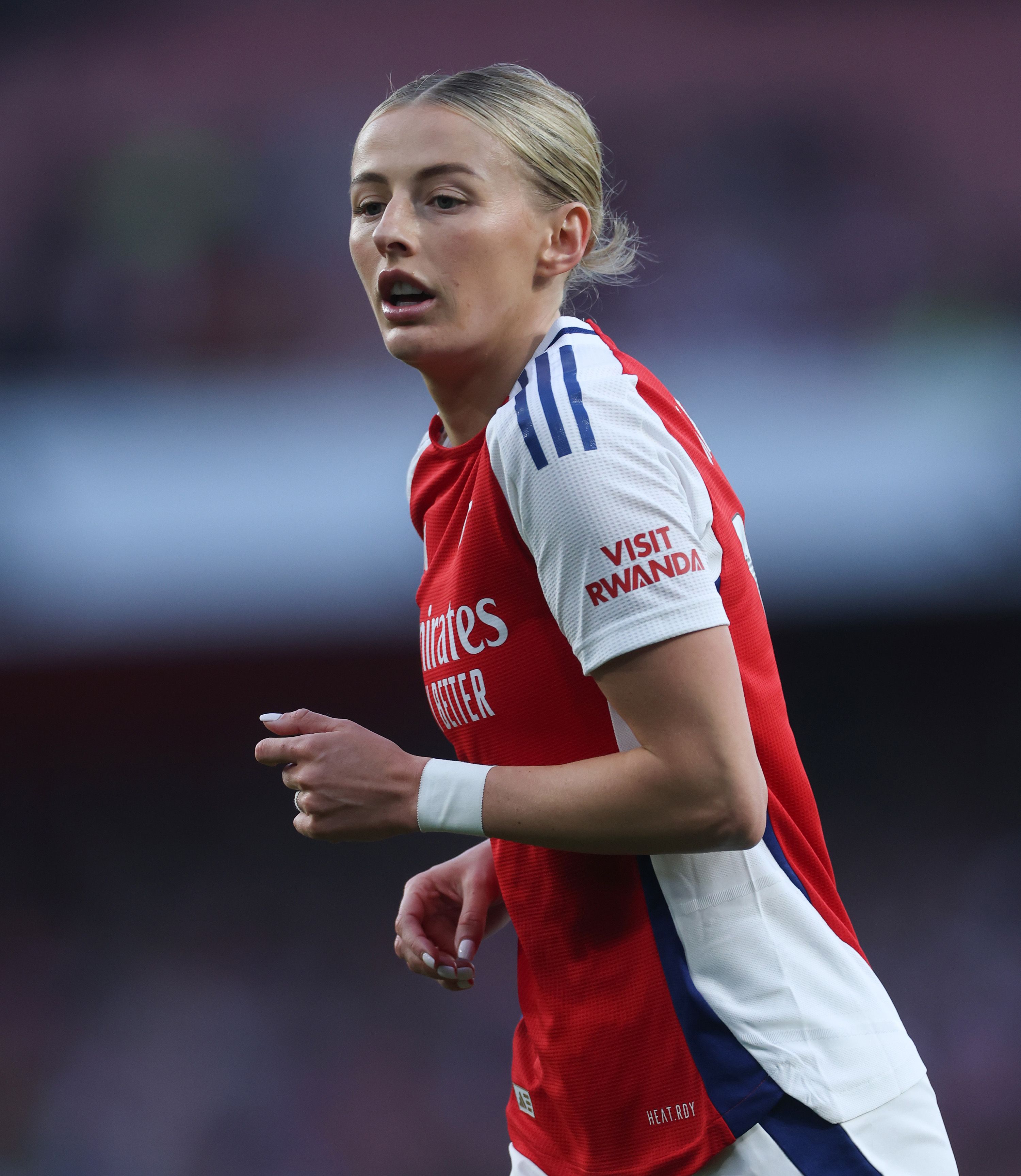
What will your footballing philosophy be if you go into management?
I’d love for any team coached by me to be the side no one wants to play against. I’d want the squad to be very creative while still working hard for one another. With and without the ball, work hard for each other. An exciting team that’s relentless is front of both goals would be the dream.
Do you enjoy the analysis side of the game? (And why/why not?)
The visual aspect of post-game analysis is how I love to learn. Sometimes, you can default to working straight from emotion after a match, but when you watch the clips back and you really go into detail, you can sometimes see a whole new perspective. After every game, I try to watch the highlights before I go to sleep at night because that allows me then to switch my brain off.
Who in the current squad would make the best manager in future and why?
I'd probably say Katie. She's very direct in her leadership and she drives standards every day at training. But Kim is also a real leader within the group, so she could definitely be a manager one day. Two very different styles, but two people who would make great managers.
What can football learn from other sports?
I really enjoy watching boxing, which is definitely a sport with a lot of discipline. Individual sports are very different to football but there’s so much to learn from other sports. I can't ever see myself in the ring but in football, you always have your teammates to back you up and fight for you in that moment. Whereas in boxing, it's very individualised and the mental strength it takes to hold your own is next level. I don’t think people always realise the amount of coaching that’s happening during a fight. There might be a game plan going into a fight but one punch could change that. I like that reactiveness when it comes to coaching.
I've tried to look at the boxing in terms of footballing. Perhaps there are one or two rounds where you’re under pressure but you have other rounds to change momentum and make up for it. You can't really get emotional within boxing either. If someone is hitting you and hitting you hard, you really have to focus on your game plan even whilst that is happening. In terms of discipline and effort and putting your body through the ringer, boxing is top.
